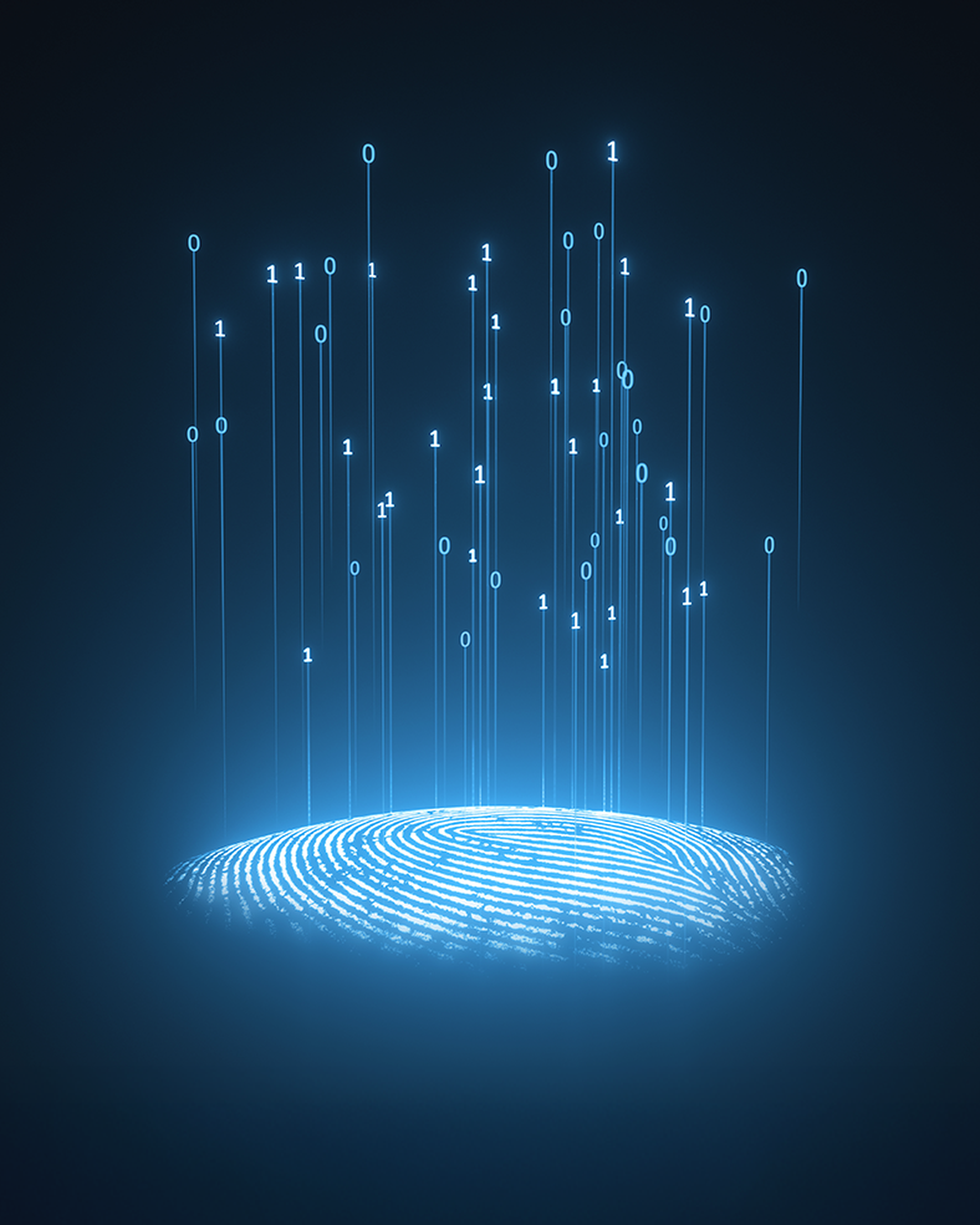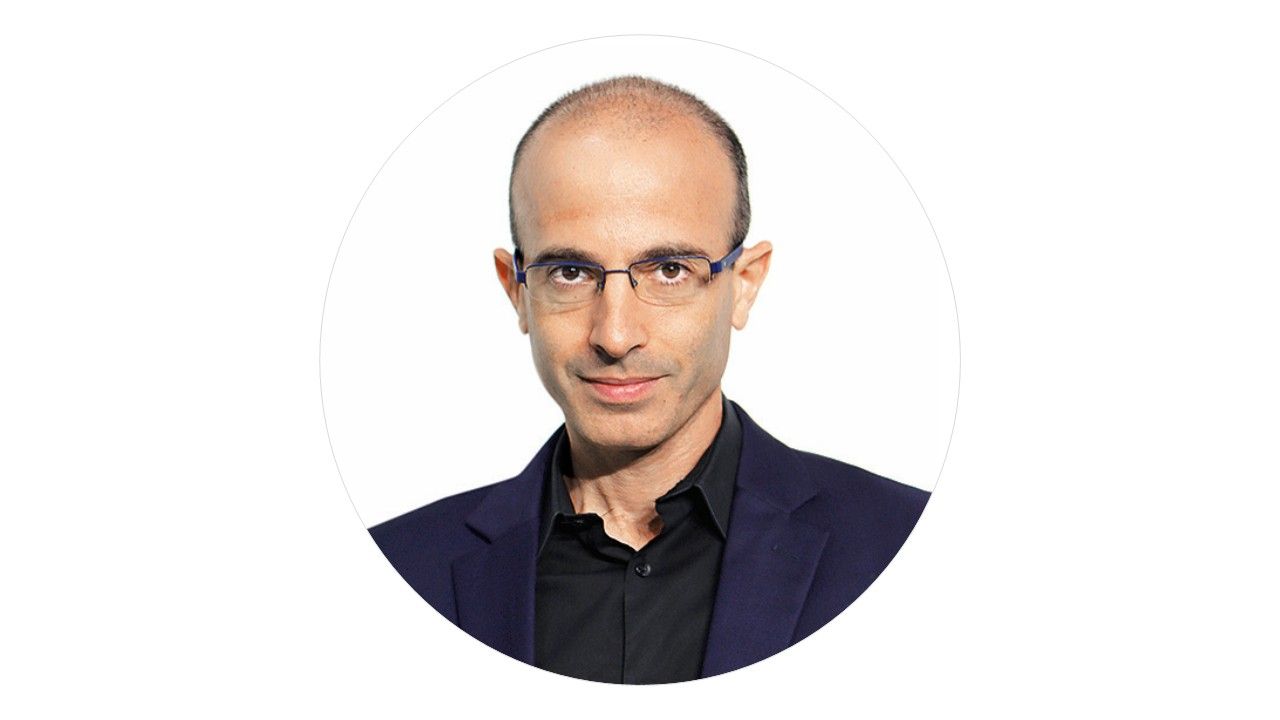
Dataism Explained: Humanity Through the Lens of Algorithms
The Religion of Data
Lateral thinking is the origin of Porsche Engineering. Without an unconventional idea there are no innovations—and no responsible use of new technologies. That’s why we like to think outside the box and regularly draw inspiration from other sources. For example from Yuval Noah Harari. The Israeli historian and bestselling author is one of most sought-after thinkers of the present moment. His book Homo Deus examines the question of the future of humanity. The following excerpt is about the new “data religion,” in which animals, people, and societies are regarded as nothing more than different forms of data processing.
Dataism says that the universe consists of data flows, and the value of any phenomenon or entity is determined by its contribution to data processing. This may strike you as some eccentric fringe notion, but in fact it has already conquered most of the scientific establishment. Dataism was born from the explosive confluence of two scientific tidal waves. In the 150 years since Charles Darwin published On the Origin of Species, the life sciences have come to see organisms as biochemical algorithms. Simultaneously, in the eight decades since Alan Turing formulated the idea of a Turing Machine, computer scientists have learned to engineer increasingly sophisticated electronic algorithms. Dataism puts the two together, pointing out that exactly the same mathematical laws apply to both biochemical and electronic algorithms. Dataism thereby collapses the barrier between animals and machines, and expects electronic algorithms to eventually decipher and outperform biochemical algorithms.
For politicians, business people and ordinary consumers, Dataism offers groundbreaking technologies and immense new powers. For scholars and intellectuals it also promises to provide the scientific holy grail that has eluded us for centuries: a single overarching theory that unifies all the scientific disciplines from literature and musicology to economics and biology. According to Dataism, King Lear and the flu virus are just two patterns of dataflow that can be analysed using the same basic concepts and tools. This idea is extremely attractive. It gives all scientists a common language, builds bridges over academic rifts and easily exports insights across disciplinary borders. Musicologists, political scientists and cell biologists can finally understand each other.
In the process, Dataism inverts the traditional pyramid of learning. Hitherto, data was seen as only the first step in a long chain of intellectual activity. Humans were supposed to distil data into information, information into knowledge, and knowledge into wisdom. However, Dataists believe that humans can no longer cope with the immense flows of data, hence they cannot distil data into information, let alone into knowledge or wisdom. The work of processing data should therefore be entrusted to electronic algorithms, whose capacity far exceeds that of the human brain. In practice, this means that Dataists are sceptical about human knowledge and wisdom, and prefer to put their trust in Big Data and computer algorithms.

“Dataism points out that exactly the same mathematical laws apply to both biochemical and electronic algorithms.”
Guest Author Yuval Noah Harari
is a bestselling author from Israel and one of the most famous historians in the world. The excerpt comes from his book Homo Deus (HarperCollins Publishers). Other works by Harari include: 21 Lessons for the 21st Century and Princes in the Cross-Hairs.
Dataism is most firmly entrenched in its two mother disciplines: computer science and biology. Of the two, biology is the more important. It was the biological embracement of Dataism that turned a limited breakthrough in computer science into a world-shattering cataclysm that may completely transform the very nature of life. You may not agree with the idea that organisms are algorithms, and that giraffes, tomatoes and human beings are just different methods for processing data. But you should know that this is current scientific dogma, and that it is changing our world beyond recognition.
Not only individual organisms are seen today as data processing systems, but also entire societies such as beehives, bacteria colonies, forests and human cities. Economists increasingly interpret the economy, too, as a data-processing system. Laypeople believe that the economy consists of peasants growing wheat, workers manufacturing clothes, and customers buying bread and underpants. Yet experts see the economy as a mechanism for gathering data about desires and abilities, and turning this data into decisions. […]
Sapiens evolved in the African savannah tens of thousands of years ago, and their algorithms are just not built to handle twenty-first-century data flows. We might try to upgrade the human data-processing system, but this may not be enough. The Internet-of-All-Things may soon create such huge and rapid data flows that even upgraded human algorithms cannot handle it. When the car replaced the horse-drawn carriage, we didn’t upgrade the horses – we retired them. Perhaps it is time to do the same with Homo sapiens.
Dataism adopts a strictly functional approach to humanity, appraising the value of human experiences according to their function in data-processing mechanisms. If we develop an algorithm that fulfills the same function better, human experiences will lose their value. Thus if we can replace not just taxi drivers and doctors but also lawyers, poets and musicians with superior computer programs, why should we care if these programs have no consciousness and no subjective experiences? If some humanist starts adulating the sacredness of human experience, Dataists would dismiss such sentimental humbug. “The experience you praise is just an outdated biochemical algorithm. In the African savannah 70,000 years ago, that algorithm was state-of-the-art. Even in the twentieth century it was vital for the army and for the economy. But soon we will have much better algorithms.” […]
The Dataist revolution will probably take a few decades, if not a century or two. But then the humanist revolution too did not happen overnight. […]
Info
Text first published in the Porsche Engineering Magazine, issue 1/2020.
© Yuval Noah Harari
Excerpts from Ch. 11: “The Data Religion” from Homo Deus by Yuval Noah Harari. Copyright © 2017 by Yuval Noah Harari. Used by permission of HarperCollins Publishers.
Copyright: All images, videos, and audio files published in this article are subject to copyright. Reproduction in whole or in part is not permitted without the written consent of Porsche Engineering. Please contact us for further information.
Contact
You have questions or want to learn more? Get in touch with us: info@porsche-engineering.de

